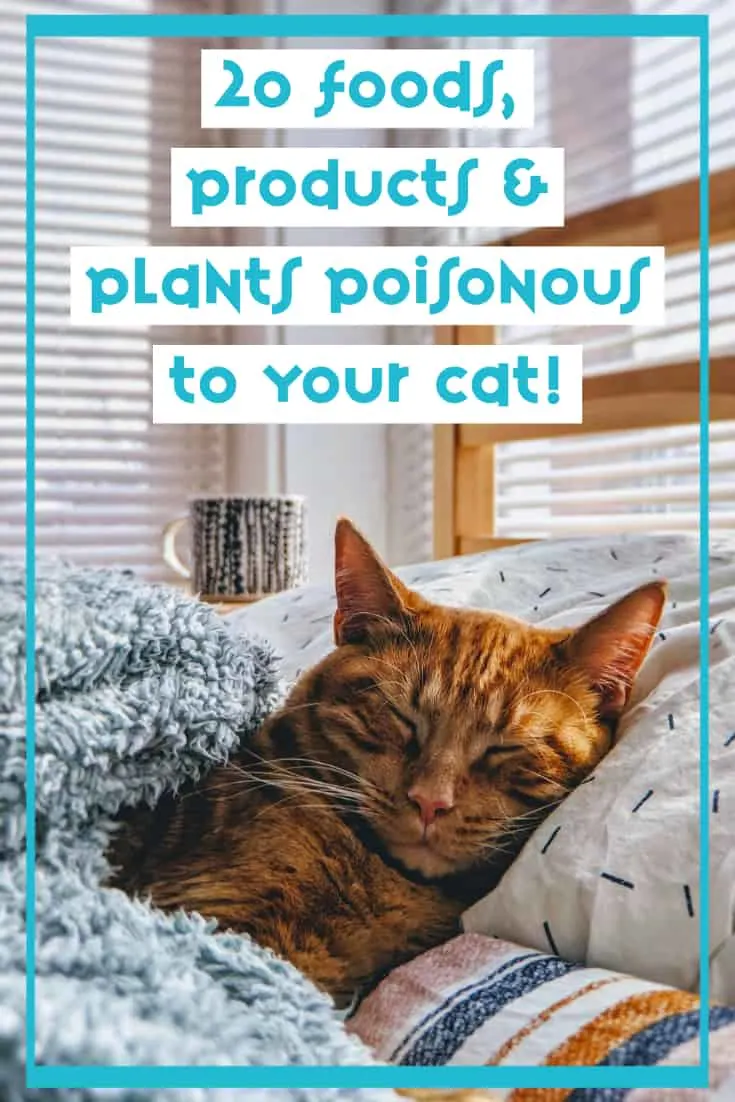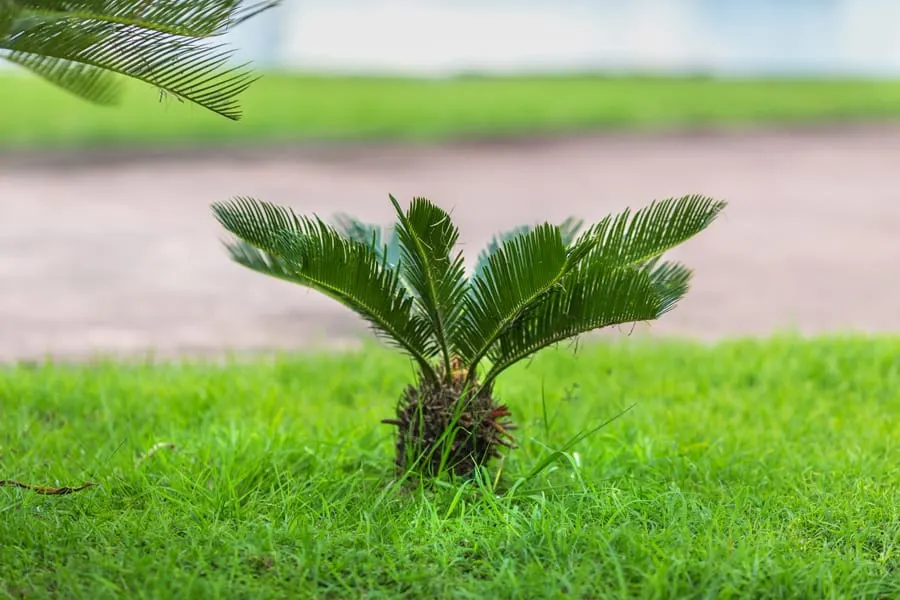We love lists…but here’s one we DON’T like to see: the items that caused the most emergency visits as reported by Pet Poison Helpline.
While some, like Easter lilies, are ones we can go out of our way to avoid, others, like our own prescription medications, are must-have items in our homes.

The trick is to keep these potential dangers safely away from cats at all times.
Please take a moment to scan over this list (and please share it with fellow cat lovers to keep all cats safe and healthy!)
Cats: Top 10 Toxins
Lilies

Plants in the Lilium species, such as Easter, Tiger, and Asiatic lilies, cause kidney failure in cats. All cat owners must be aware of these highly toxic plants!
Household cleaners
Most general purpose cleaners (e.g., Windex, Formula 409) are fairly safe, but concentrated products like toilet bowl or drain cleaners can cause chemical burns.
Flea and tick spot-on products for dogs
Those that are pyrethroid based (e.g., Zodiac, K9 Advantix, Sergeant’s, etc.) cause tremors and seizures and can be deadly to cats.
Antidepressants
Cymbalta and Effexor topped our antidepressant list. Cats seem strangely drawn to these medications. Beware – ingestion can cause severe neurologic and cardiac effects.
NSAIDs
Cats are even more sensitive than dogs to drugs like ibuprofen and naproxen. Even veterinary specific NSAIDs like Rimadyl and Meloxicam should be used with caution and only with your vet’s direction.
Prescription ADD/ADHD medications
These amphetamines such as Adderall, Concerta, Dexedrine, and Vyvanse can cause tremors, seizures, cardiac problems and death.
Over the counter cough, cold and allergy medications
OTC medications that contain acetaminophen (e.g., Tylenol) are particularly toxic to cats, as they damage red blood cells and cause liver failure.
Plants containing insoluble calcium oxalate crystals
Common houseplants like the peace lily, philodendron and pothos can cause oral/upper GI irritation, foaming at the mouth, and inflammation when ingested, but severe symptoms are uncommon.
Household insecticides
Thankfully, most household sprays and powders are fairly safe, but it’s best to keep curious kitties away until the products have dried or settled.
Glow sticks and glow jewelry
These irresistible “toys” contain a chemical called dibutyl phthalate. When it contacts the mouth, pain and excessive foaming occurs, but the signs quickly resolve when the cat eats food or drinks water.
More Poisons & Toxins Your Cat Must Avoid
Mice or rats killed by rodenticides
Ingestion of mice or rats killed by rodenticide is extremely dangerous to your cat; if you suspect your cat has eaten a rodent that was poisoned, contact your vet immediately.
Chocolate
Chocolate can make a cat or dog very ill. The more concentrated the cocoa, for example in baking chocolate, the more dangerous it is for pets.
Generally dogs are more at risk of ingesting chocolate than cats are but there is always a chance that cats might show an interest in this toxic substance. Keep it up and away from your furry family members!
Raisins and grapes
Raisins and grapes are toxic to cats and dogs. While researchers haven’t determined the cause of this toxicity, both products needs to be up and out of reach.
Cycad (Sago Palm)

Beautiful sago palms are deadly to dogs and cats due to the presence of cycasin, which causes liver failure.
Onions and garlic
Macadamia Nuts
Caffeine
Caffeine in all forms is toxic to cats; make sure your cat avoids brewed coffee, coffee grounds, and energy drinks.
If you suspect your cat has gotten into toxic or poisonous substances
If you suspect that your pet has gotten into a poison, immediately call your veterinarian, your local emergency veterinary clinic.
You can also call the ASPCA Animal Poison Control Center at 888-426-4435 or the Pet Poison Helpline at 1-800-213-6680 (in North America). You can also download the Pet Poison Helpline iPhone application with an extensive database of over 200 poisons dangerous to cats and dogs on iTunes.
- 🎉 GIVEAWAY: Lord of the Pets Portrait of Your Cat! - November 26, 2024
- Review: Lord of the Pets Cat Portraits! - November 26, 2024
- Cat Adoption: FAQ You Might Have - June 28, 2024
